Are you a student looking to explore your academic interests through an independent study? Writing a thoughtful request letter can set you on the right path and impress your instructors. In this article, we'll break down the essential components of a successful independent study request, providing tips and examples to guide you. Keep reading to discover how you can craft a compelling letter that showcases your enthusiasm and initiative!
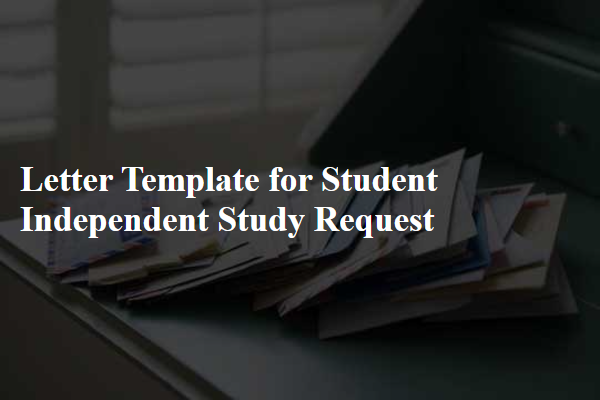
Subject Line Clarity
Subject line clarity is crucial for effective communication in educational settings. For student independent study requests, a clear subject line enhances the message's visibility to educators, administrators, or mentors. Recommended subject lines include specific details, such as "Request for Independent Study Approval: Advanced Biology Project," or "Independent Study Proposal: Exploring Quantum Physics." Including relevant keywords such as "request," "independent study," and the subject matter allows recipients to quickly grasp the context. Additionally, incorporating the student's name and course details increases differentiation among multiple requests, ensuring that email communication remains organized and prioritized for timely responses.
Formal Greeting
In academic environments, independent study requests often involve formal communication. A formal greeting should include respectful addresses such as "Dear Professor [Last Name]" or "Dear Dr. [Last Name]". This establishes a professional tone essential for discussing topics like personalized curricula or independent research opportunities. Acknowledging the recipient's academic position adds gravitas to the communication. Incorporating the recipient's title and last name facilitates a respectful and courteous atmosphere, enhancing the likelihood of a positive response.
Purpose Statement
The purpose statement for a student independent study request emphasizes the need for personalized learning opportunities that align with individual interests and academic goals. For instance, a student may seek to delve deeply into specific subjects such as Renewable Energy Technologies, or Artificial Intelligence applications, aiming to explore contemporary issues or advancements within those fields. By participating in independent study, the student could effectively enhance their critical thinking skills, foster greater autonomy in their educational journey, and develop practical competencies through hands-on projects or in-depth research. This tailored approach may also complement traditional curriculum, preparing the student for future academic endeavors or career paths.
Specific Goals and Objectives
Independent study requests in educational settings often aim to explore subjects outside the standard curriculum. For example, a student might want to delve into the Marvel Universe's cultural impact on society, exploring graphic novels and films released between 2008 and 2023. Specific goals could include analyzing how character representation has evolved, investigating audience reception through surveys, and presenting findings at a school event like Cultural Awareness Week. Objectives could consist of completing a research paper of at least 5,000 words, creating a visual presentation showing key findings, and conducting interviews with classmates to gather diverse perspectives on the topic.
Advisor Request
Students often seek autonomy in their learning journey, as demonstrated by independent study requests. Such requests allow students to delve into specific subjects that align with their interests, fostering a deeper understanding and engagement. Advisors play a pivotal role in guiding these initiatives, ensuring that the curriculum adheres to academic standards while accommodating the student's unique learning goals. In academic institutions, students draft formal proposals that articulate the purpose, objectives, and anticipated outcomes of the study, providing a clear framework for evaluation and approval. This process not only cultivates self-directed learning but also strengthens advisor-student relationships through collaborative goal-setting and mentorship.

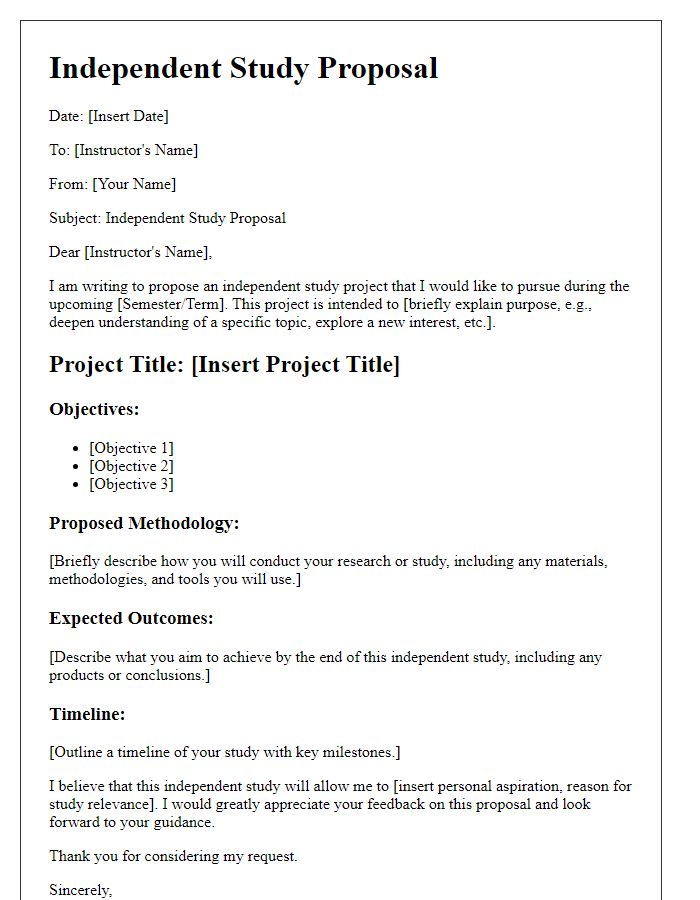
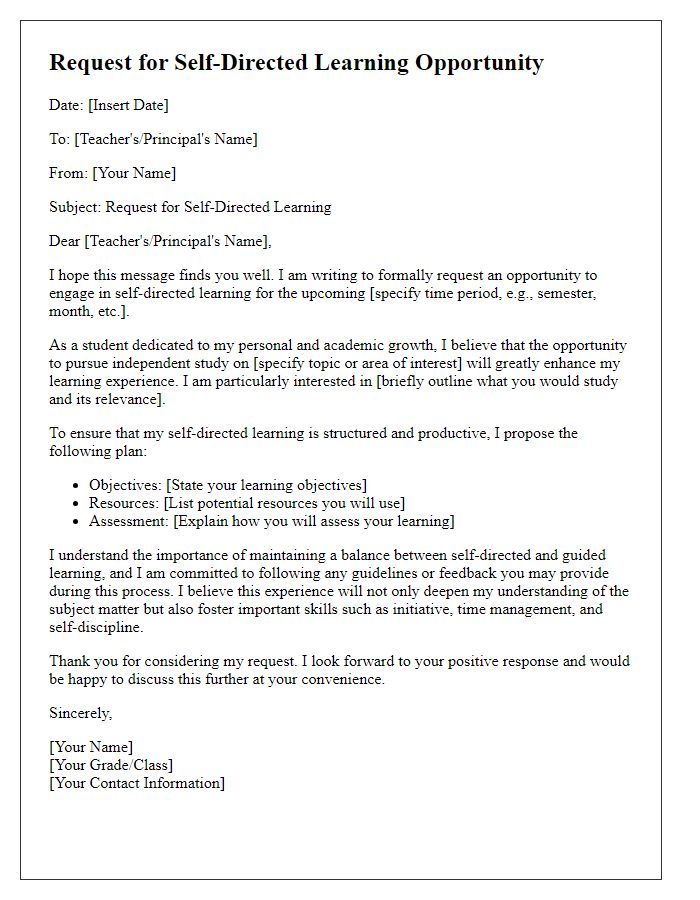
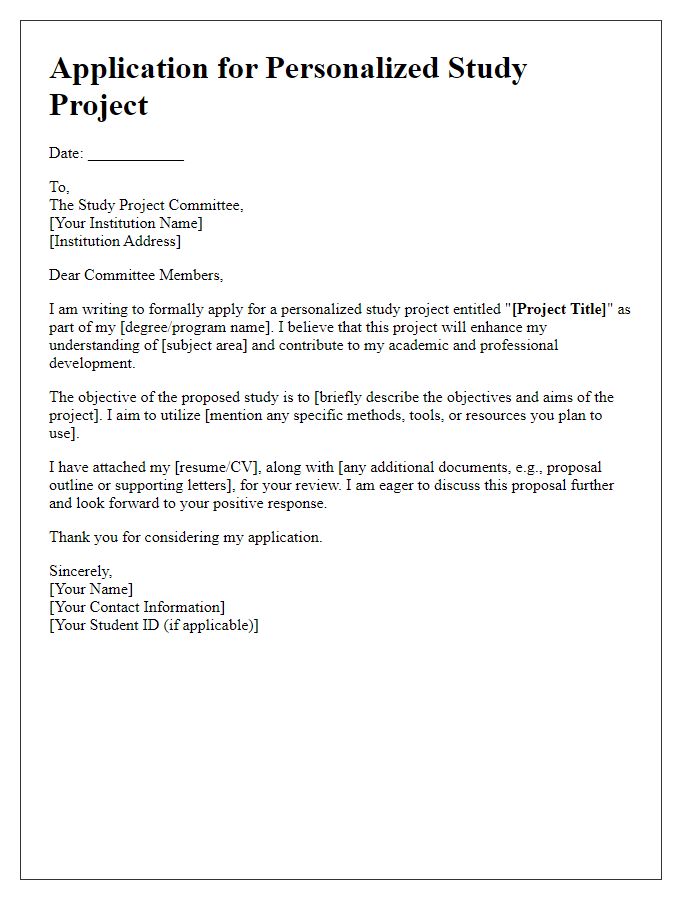
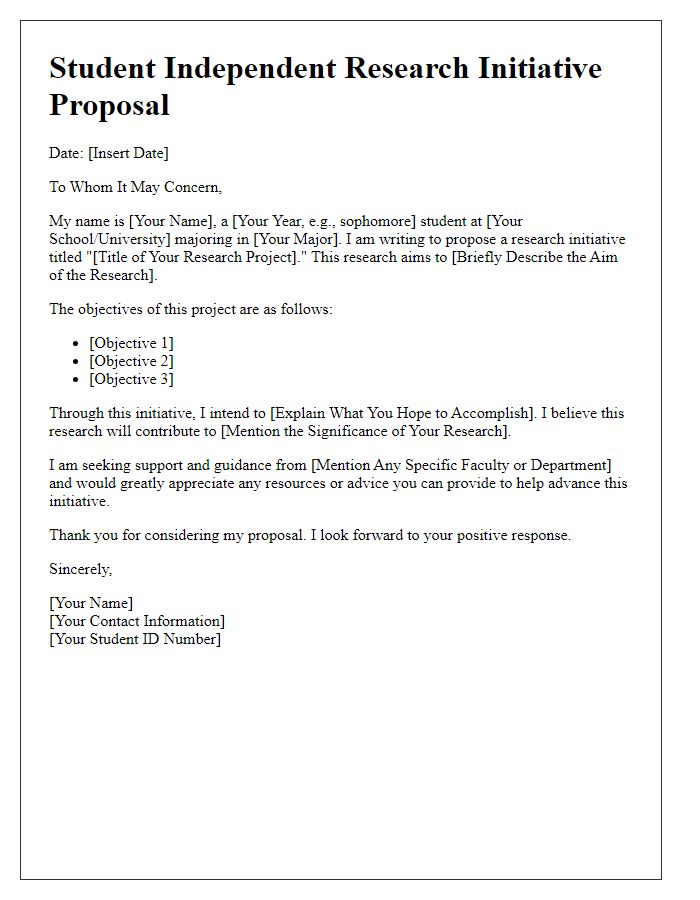
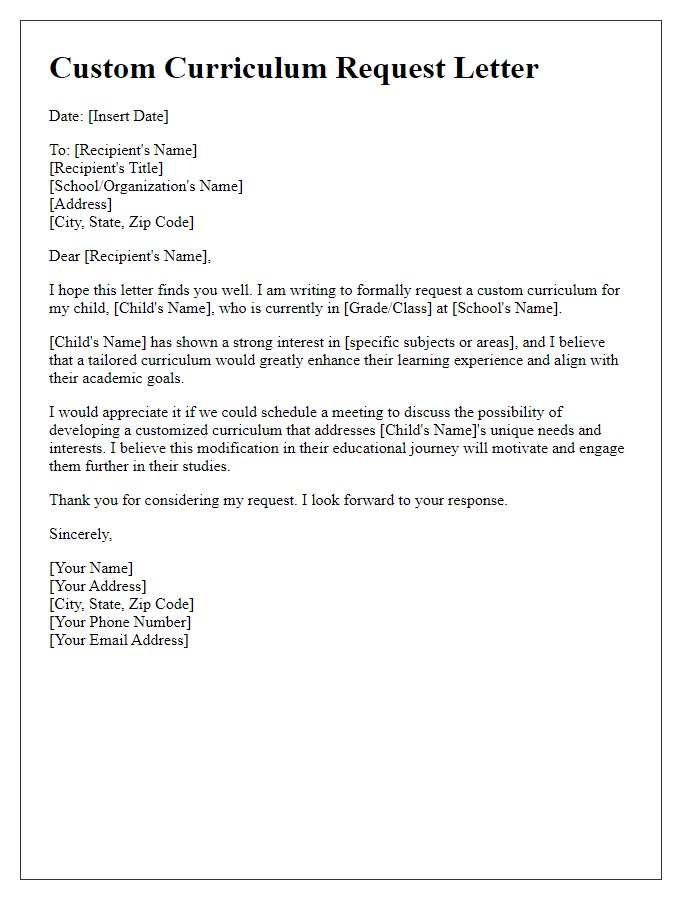
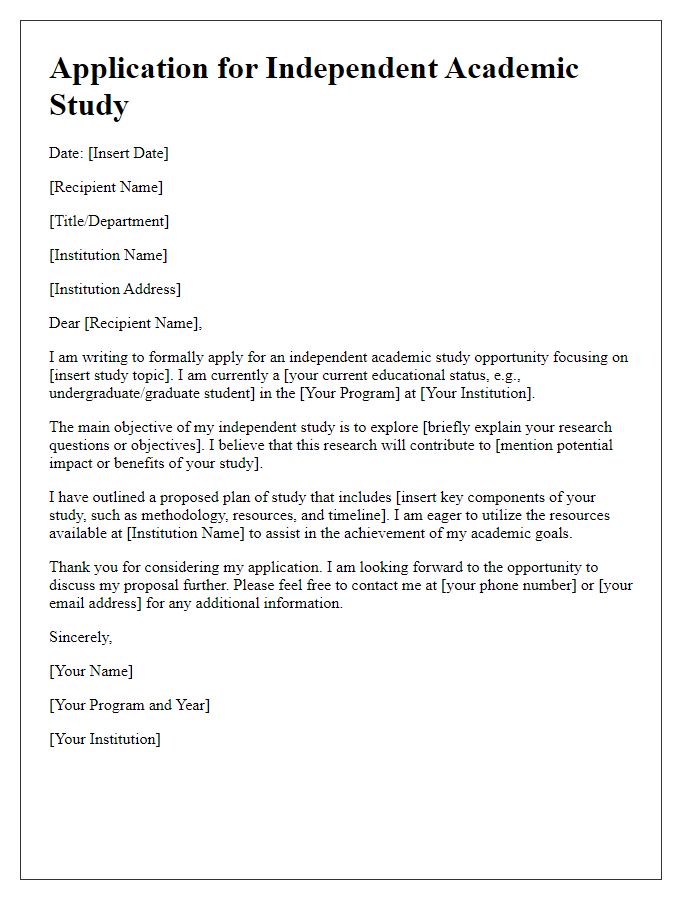
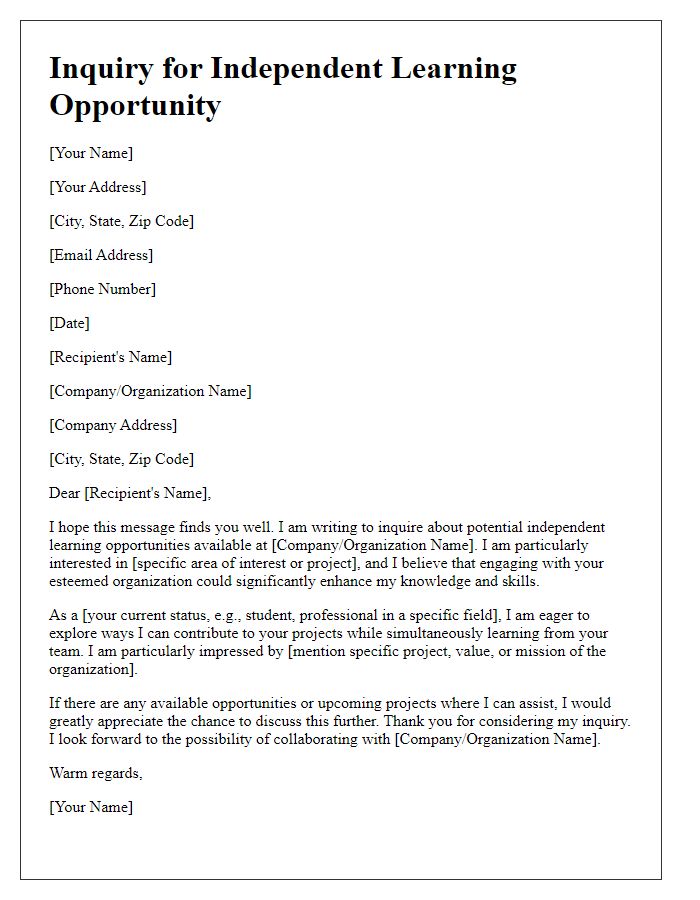
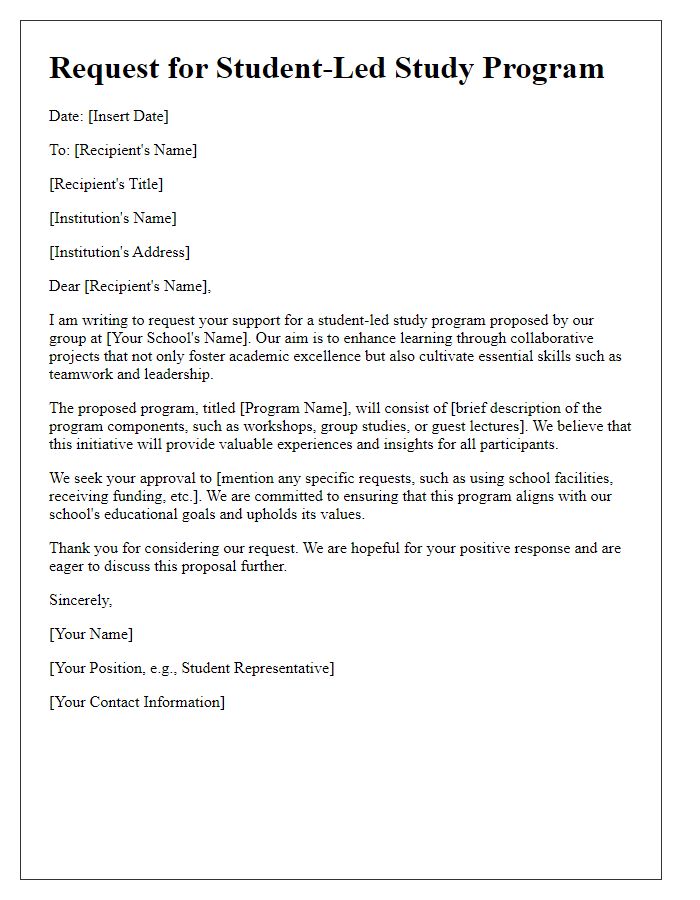
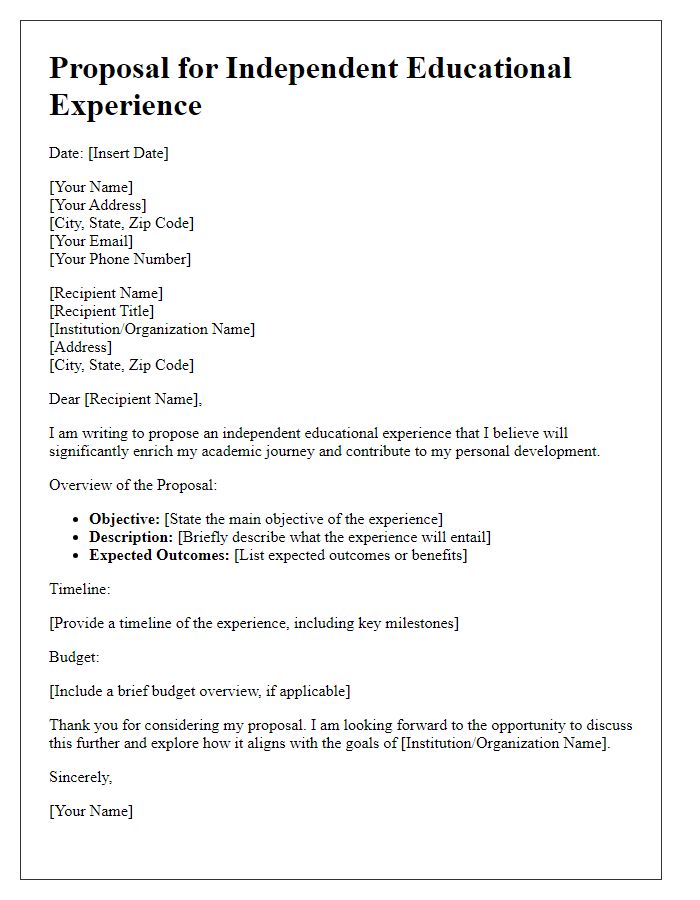
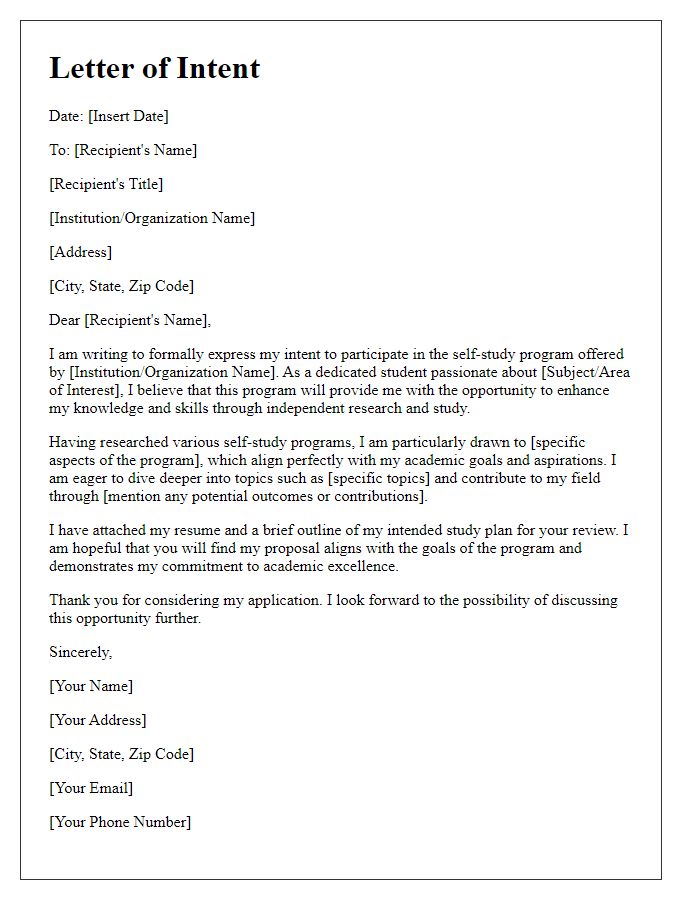

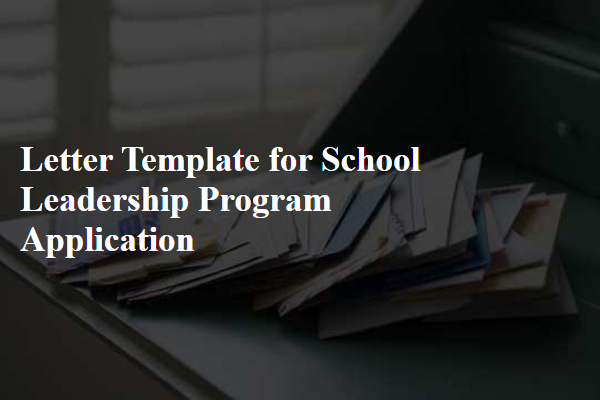
Comments